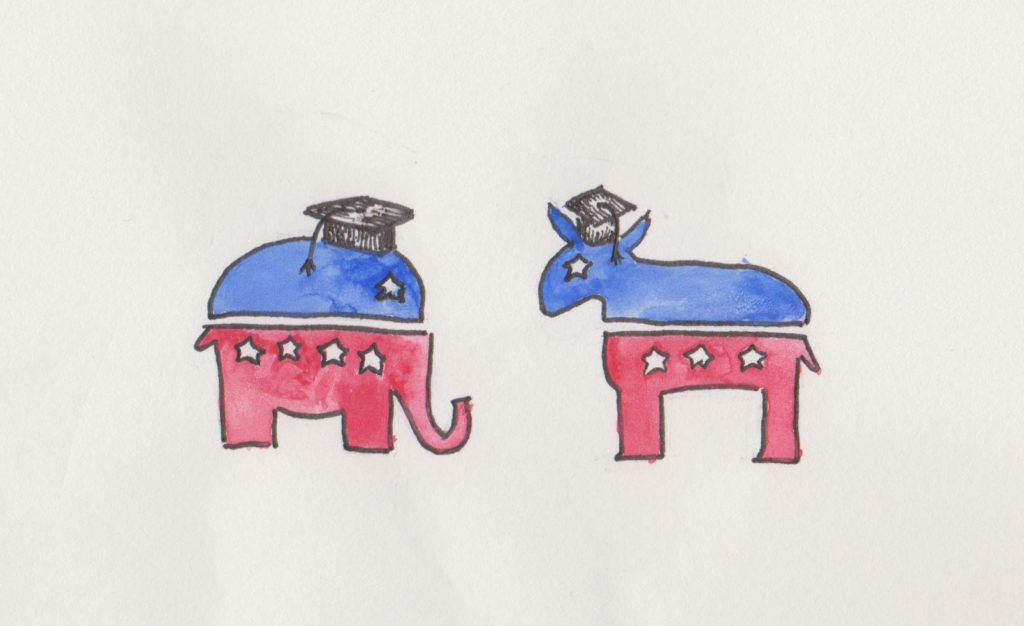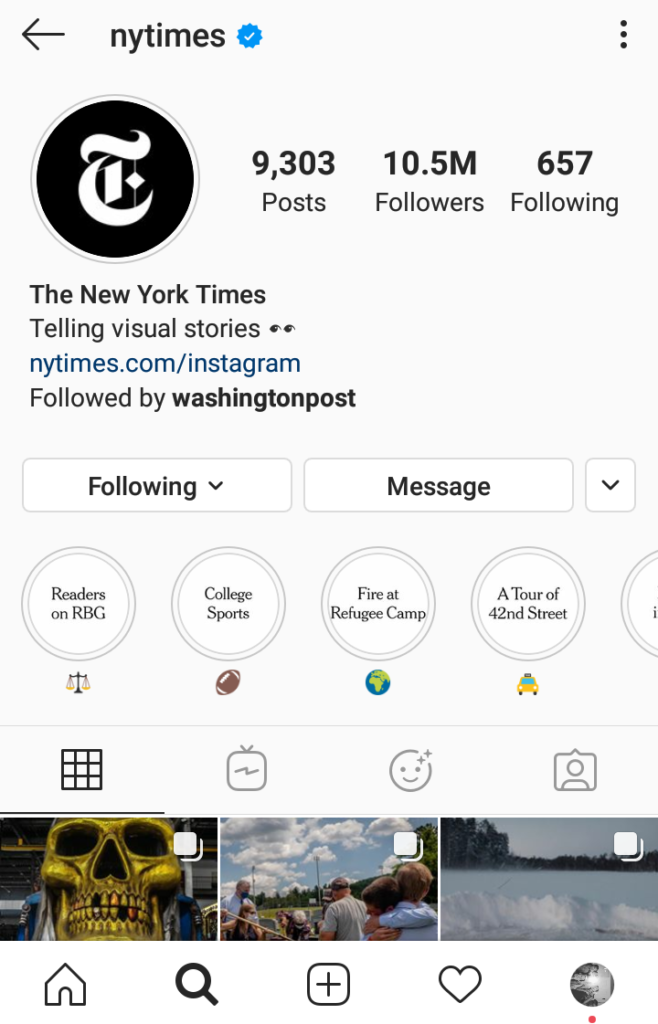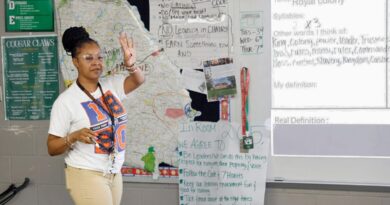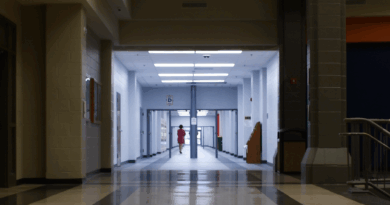
Politics and social media: How teens are involved
With the upcoming election, high school students across the nation are discussing politics more within their social media platforms to spread awareness about candidates and their stances on different issues.
Freshman Chloe Smith has used her social media platform to talk about the Black Lives Matter (BLM) movement and wearing masks during the coronavirus pandemic by reposting graphics of people wearing masks as well as threads informing people about the BLM movement.
“The Black Lives Matter movement, I feel like that’s the most important. Unfortunately I don’t see as much about it on social media as I did at first,” Smith said.
Senior Zollie Mattox has also used her social media platform to spread awareness about BLM. She reposts information about Breonna Taylor and wants to help educate others. She also tries to get others to vote by posting information about the candidates and when voting starts.
“I think it’s really important for (teenagers) to still know what’s going on, because at a young age you have to be aware of what’s happening,” Smith said.
While people under 18 cannot vote, they can still educate themselves and their peers and use their voices to spread information.
“I think students should know what’s going on. They need to know that they do have a voice and that someday they will be able to vote,” sophomore Ella Johnson said.
With school being completely online, social media is an easy, accessible way for high school students to keep up with the latest news.
“I get some (political information) from social media,” Smith said. “I watch a lot of news on TV, and I used to get notifications on my phone from news apps but I don’t anymore. I did get a lot of information from articles for a while.”
Getting notifications from these types of news outlets got Smith relevant and current information and helped her become more aware of the election, the pandemic, sports news and other topics.

Aside from Instagram and news apps, TikTok is another social media platform that has 800 million users worldwide according to Datareportal. In June 2020, the Gen-Z TikTok users requested tickets to a Trump rally that they did not plan to show up to in order to prevent people from going. 6,200 people ended up being at Trump’s rally in contrast to the 1 million tickets that were requested.
“[TikTok] is good for spreading awareness on topics that don’t get a lot of news coverage,” Smith said.
Considering the number of movements and constant political news currently, some students prioritize certain issues differently.
“I think the main [political issue] is healthcare,” Johnson said. “It’s sad how many lives have been lost due to the ignorance of not wearing masks.”
“I look at immigration because I feel like what they have to go through is not fair at all.” Mattox said.
Mattox also feels that education is important, so when Georgia passed House Bill 444 limiting dual enrollment to 11th and 12th grade and 30 total hour credits, she was disappointed.
“That affected people I know. You should pay attention to your local government because a lot of local laws affect us,” Mattox said.
Whether or not the information coming from social media is reliable is a different story. Social media platforms like Facebook, Instagram, or Twitter can provide political information, but posts can hold false statements. NPR conducted a study that found that at times, 80 to 90% of students had trouble judging the credibility of the news they read.
“It’s really hard to tell (if) it’s reliable because it’s just coming from completely random people,” Smith said. “If you’re cautious about what you’re viewing, then I think it can be pretty reliable.”
“I know for a fact not all information is reliable. That’s why I try to do my own research. So I can see a little bit of everything and try to put pieces together,” Mattox said.



